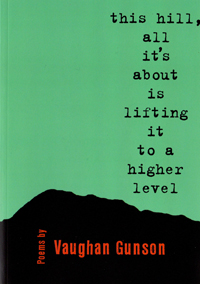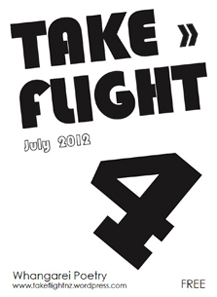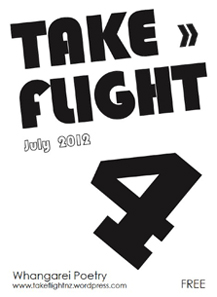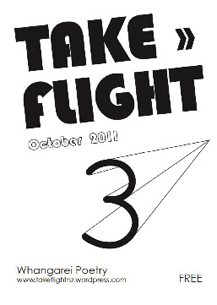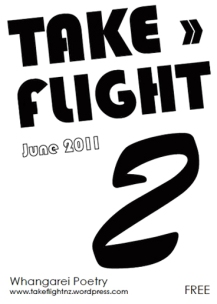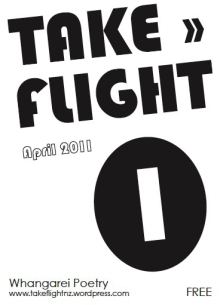Vaughan Gunson’s new poetry collection
To purchase Vaughan Gunson’s poetry collection this hill, all it’s about is lifting it to a higher level (2012) go to the website of the publisher Steele Roberts. Or send a cheque for $20 (includes postage) to Vaughan Gunson, 71A George Street, Hikurangi, Whangarei (with return address).
To listen to the Arts on Sunday (9 Dec 2012) Radio NZ interview with Vaughan Gunson click here.
Crespuscle with Nellie
by Martin Porter
Thelonious Monk and John Coltrane, Carnegie Hall, November 1957
They were not in his canon. Dizzy,
Billie, Ray, he stomped the same boards,
Chet and Sonny too
Humph he did not meet
but that did not stop
him writing
Effortless his playing
Unique undoubtedly in genius fashion
as peculiar as his hat
Vast
Erratic
The angular notes
strike from the piano strings
like crimes
of Epistrophy:
angular dancesteps, complex,
astringent, roll like a spiked ball
John’s sax is calming. Laminated
sheets of space flow in long solos, probing
discovered corners of this difficult man. The joy is evident
while he plays, not one, not two, but
,fluent,
Many notes, all at once, or in rapid
Punctuation.
Do you feel you have to get up
And dance?
Do you feel you have to sit down
To seize the opportunity?
Well, you needn’t.
Silence of the lamb
by Arthur Fairley
She refused
to take her words orally.
The earliest were force-fed by a
panicked mother. Hopefully
out of harm’s way. She began to dance
open-mouthed through the gland’s shadow,
a wail-harp is brought in,
little by little white notes are torn
from her throat
mucous-torn
uterus-torn
it is the breeding season of song.
a pub in Kaitaia on Anzac Day
by Vaughan Gunson
a space with more room
than what’s needed
pushes back
the hazy night crowd, watching
the play
at the pool table.
the young sailors
showing-off,
wearing ridiculously white
square collar shirts, low-cut
revealing tufts of hair
on their backs.
they look
like guys I went to school with,
not men
standing on a ship
in the Dardanelles.
then there’s the boys
in Wu-Tang jackets
wondering what the fuck
I’m doing here.
the woman in the yellow jersey
with the fluffy neck
sinks the black
in a corner pocket,
there’s few claps of applause.
her opponent,
a grey bearded gentleman in shorts
goes over to her, they embrace
& kiss each other
on the cheek.
everyone who’s been watching
turns to talk
to someone else.
I raise my glass
to the Wu-Tang boys
who smile back.
Twinkle, twinkle, little planet
by Bernard Heise
When the first incidents occurred in Cairo, Berlin, Toronto and Wichita, people mistook them for acts of terrorism. But the reality was worse. Eyewitness reports indicated that the individuals involved were not setting off suicide bombs but rather were the victims of some sort of fire that spontaneously flamed from within before making them explode. Certainly, the explosions weren’t nearly as powerful as a typical suicide bomb, but they could easily kill or maim anyone nearby, obliterate a taxicab or disable a bus. And, apart from a large sect of evangelical Christians who were convinced, despite biblical inconsistencies, that they were witnessing the rapture and eagerly anticipated their own combustion, most people found them much more frightening, for they were completely unpredictable and unexplained. As the frequency of such incidents grew, so did the probability that within any group an individual would ignite. Like the Black Death, the threat was indiscriminate, failing to honor the privileges of socio-political distinction. Explosions were taking place in homeless shelters, corporate boardrooms, at cabinet meetings, and family dinner tables. As they looked into each other’s eyes, friends, comrades, and lovers not only recognized their mutual affection but now also understood that they were the likely agents of their own mutual destruction. And so it was that people stopped working and playing. Instead, they slipped their bonds of sociability and fled the burning cities, seeking solitude in the forests and the hills, where they forgot their language and waited in silence for the fire within.
The night vodka got into the compost
by Martin Porter
Franz Kafka, diaries 1910-1923
Were we crazy?
We ran through the park at night
Swinging branches until our leaves fell,
Exhausted, laughing at the full Moon,
Roots free at last, tasting fresh air
For the first time, enlivening their thirst
For ground waters again.
We might have been observed…
We watch you in the day,
Little people tripping over the stones
Crushing grass in the haste to get
From where to where?
Kicking up the gravel.
Dance on, hasty fools,
What concern is it of mine?
I saw rhombuses that looked like diamonds
by Vaughan Gunson
I saw a lady with a blue rinse
the same as her car
I saw a dead moth floating
on a pyre of plastic
I saw weary flowers
wrapped in paper packets
I saw sunlight hitting
like a shower of ice
I saw a thin man dancing
on stage
above a metal furnace
I saw the breeze
brush the blossoms
of cherry trees
I saw soft leaves of grass
to step on
I saw rhombuses
that looked like diamonds
& I know
that no matter how hard you throw a marshmallow
it’s never going to hurt.
Uretiti
by Peter Larsen
There is no shade
on beach or dune
curving for miles
in either direction
so here nudists,
mainly men,
middle-aged,
unnaturally bronze
with matronly hips
and small shoulders,
sit statuesque
on brilliant beach towels.
Waves do not break
but bounce back
off the sand bar
and recede toward craggy,
hazy islands.
From the double-back waves
she rises
pert, slinky, naked,
zigzagging
the soft sand
where jaw-dropped
teenage boys
pretend not to look.
Beside me
she towels off,
lies down
so I scoop
hot sand,
pour it
over her legs and arms
where my bliss
is her bliss
and her bliss
ovals her mouth
so I pour
and pour and pour
until slowly
she vanishes.
why do it?
by Vaughan Gunson
I guess it’s because
if you don’t write it down
tell it to your neighbour
plant it in the ground
it all just slips away
which is where
it’s going anyway
but we want, at least
to feel some friction.
the adytum of luminous spirits (one)
by Piet Neiuwland
catapaulted voices crowd the
silence of a bleeding sky
in the mild maritime season
love is an embryo of bubbling auroras
in a black idea of eyes
we stray onto a meteor of hail
circled by ravens, pelicans and swans
you float on gossamer wings of sound
recalling the innocence of birth
waiata of the dead call to the unborn
and we become prey to angels of islands
your fingers blossom on my eyelids
my lips flower on your thighs
pellucid sighs abandon in a tide of ancient moons
on a ridge corroded by rain
tears speak of an invisible silence
blood clots of cloud spill into muddy rivers
marshes stir with footprints of pukeko
Tawhitirahi, Aorangi trumpet rhyolite castles
in an ocean, in a sky of all blues
engulfed in hurricanes of currents
moulded in our stone hands
in the ritual of gardens
you choose an untravelled path
between kowhai and stars
Moon Landing. 1969.
by Arthur Fairley
The hillside crawled with fire
the fragrance of the manuka laid down in fumes.
Autumn was burning.
One half of the moon was yellow, one third orange
and the rest scorched black. It was the only time
any of us had seen a moon crash land, sizzle on
the ground, the only time we knew certainty
you look up, your mouth a tube, an astonished O.
A foreigner entered my body as though seeing
for the first time, as though knowing about all our delicate delusion
we thought a name change might make a difference
it’s hard to know what to leave out
I don’t want to say too much in case the words are in the way.
And now
spring grows, clambers over everything
sustained
by charcoal rain and a high-heeled sun,
each day a spoonful
a recovered taste
it takes forever to live the rest of my life.
sea song
by Michelle Elvy
you’ll be gone forever
and a day
naw. just three oceans. once
around the world
you’ll meet mermaids
and sirens
yes. but my journey
ends here, with you
you’ll forget
i’ll see you in the sea
how do you know?
because your eyes are in the sun
your hips on every wave
your breath the wind
will you remember this?
this i’ll remember most of all
the space between your belly button and rib
distance from your shoulder to wrist
the miles from knee down to toe
ok then
now shhhhh
let me dive into your southern ocean
~
This poem first appeared at 52|250: A Year of Flash
big love song #21
by Vaughan Gunson
after the Futurists
we sing a curious love, conceal our fear
between dull habit & fitful energy.
but courage, yes, & some audacity
is the essential element of our poetry.
’til now we’ve exalted a pensive dance,
ecstatic seconds, the gnawing sleep.
no violent action, or feverish reprise
breaks our stride; no irresponsible leap.
our world’s found a new beauty: a distance near,
a lasting hold, truer than Madonna’s smile.
we can hymn the circling seasons, run
the orbit of the Earth, & maintain our guile.
before the music starts
by Vaughan Gunson
I’ve had a shower,
got changed
into a nice shirt,
put on mauve coloured
square-toed shoes.
placed upon my head
a baggy cap.
poured a whiskey,
taken a sip.
pushed the button
on my laptop, waited.
looked at the face
of Garcia Lorca
on the spine
of his collected works.
thick dark eyebrows,
hair combed back,
he’s waiting, too.
the computer
has finished starting up.
four minutes past nine.
I take another sip
of my drink.
it tastes good,
as does everything
so far.
a short sharp skid
of noise,
the record’s ended.
I get up & turn it over.
place the needle, hear
so clear
the first scratches
before
the music starts.
I go back to my desk,
sit down.
a car pulls up outside,
two friends.
they knock on the door.
I let them in.
inside the museum
by Vaughan Gunson
at one of end of the room a grinning idiot,
at the other a dying man, trying to hold
himself to the wall, his struggle alone.
a slave brings in a bowl of red wine
which she pours into each of our cups.
on the ceiling an aristocratic dandy
lifts an arm towards God, the angels recoil
& the artist says how much he knows.
the revolution of reason is talked about,
Socrates says it comes, reaching for his cup.
someone has spilt yellow paint on the floor;
outside, people cross a bridge in the rain.
a woman in agony holds her dead child,
a picture of terror that won’t go away.
not even when you see the joker, standing
with his legs apart in multicolored tights.
in walks the leader, smoking a pipe
& wearing a full length silk gown.
he takes a look at the poster on the wall
& says he doesn’t understand why
some armies must be defeated, wars won.
he doesn’t notice the bags of coal above his head,
or the black dust on his shoulders & in his hair.
he ambles over to the pious monks
sitting in deckchairs, contemplating their own.
they don’t hear the noise of soup cans
being stacked up high on the shelves, or
the tower being built, only to fall down
on its shadow—or the bulldozers being used
to make something that will last.
beside the spilt paint a sign has finally
been placed which says “WET PAINT”
& through a window in the prison wall
children fly their kites up into the sky.
to American poets of the 1940s & their parties
by Vaughan Gunson
tired birds tweet, up the back
of a gorse covered hill,
not from a window ledge, London.
everything here tied up
in the air of all the familiar chaos
that ends the day.
I’m listening to Maria Callas,
reading a story of poets
when they were young, dangerous
with a glass of Laphroaig,
a smoky peatiness on the tongue
for boasting, for entertaining guests
who know how to talk
about Auden, Elliot & Proust,
Yeats, Thomas & MacLeish
who won’t mention the war
at 3am, but into another round
of Shakespeare, then Donne.

